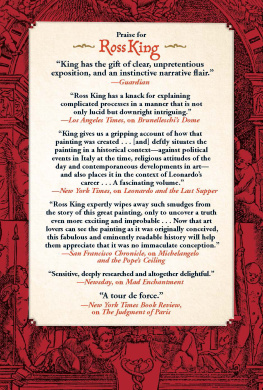or: Belles vs. Lettres
I did not interview anyone for this book, nor did I make a nuisance of myself at the public library, so I have none of the usual people to thank.
I would, however, like to express my gratitude to my editor and fellow Southerner, Mrs. Aldis Jerome Browne III, ne Miss Jean Reynolds Dillard, a direct descendent of Governor Spotswood of Virginia.
Mrs. Browne, whose next-to-favorite word is penultimate, knows 435 ways to get because out of a sentence, and she shared every one of them with her author.
Next to editing, her greatest service has been morale-building via that Southern custom, passing the time of day. Hence I wish to thank my publisher Sol Stein for gallantly paying the phone bills. Transcripts will shortly be made available to the public in a fifteen-volume matched set tentatively entitled Giggles Deleted.
Thanks are certainly due my other publisher, Patricia Day, for her unflagging skepticism when confronted with authors who guarantee the accuracy of historical facts with: I think I remember reading something about that somewhere. Ms. Day also served with honor in her official post of Yankee Crucible. Encountering such blithe regional assumptions as: Everybody has a crazy cousin who hearsvoices, Ms. Day somehow managed to find sufficient space in the margins to record her standard comment: ?
Thanks are also due to Stein and Days sales manager and secret weapon, John Maclaurin, Scotlands penultimate intoxicating export, who has the power to make weak women weaker merely by rolling the r in Florence.
Finally, I would like to thank God for the use of His name, which I took in vain in the margins during the First and Second battles of Because.
My publishers decision to re-issue Southern Ladies and Gentlemen proves the power of word-of-mouth advertising.
At the time of its original publication in 1975, I got stacks of fan letters during its two-edition hardback life. They continued coming in steadily through eight paperback editions, but then something strange happened. After the title went out of print in the early eighties, my mail, instead of tapering off, kept coming.
Old readers told me they wanted to read it again, but when they tried to buy another copy they couldnt find it. New readers said they had heard about it, or come across a quotation from it, but when they tried to buy a copy they couldnt find it. The most memorable letter came from a woman who wanted to buy fifty copies for party favorsbut couldnt find it.
As time went on, my mail took on a note of desperation that frequently threatened to spill over into hysteria. People wrote me about how they had lent their only copy to a friend and never got it back, described their frustrating experiences with book-find services,asked me to sell them my personal copies, confessed to stealing public library copiesand even, in one case, to xeroxing the librarys only remaining circulation copy after discovering that the rest had been scarfed.
A few weeks ago I heard from a woman who said she had read her copy so many times that it fell apart, and now she wants another one, and while shes at it she wants to buy a dozen more for Christmas gifts, but she cant find it anywhere, and the book store told her it was out of print, and she nearly died, so would I please tell her where can she get some?
I answered all of this mail, at first with commiseration because I didnt know what to tell you, but lately with pleasure since learning that a new edition was planned. You made it happen, so before I go any further let me say thank you for your loyalty and enthusiasm, and for the delightful and touching letters that have so often made my day.
Has the South changed in the eighteen years since I wrote Southern Ladies and Gentlemen?
Of course. Its always Nixon Agonistes time in the pea patch. The latest New Souththe eighth by my countis coping with another trauma. This time its the invasion of Damnyuppies whose lust for relocating (they never say move) is turning our gothic paradise into a homogenized Sunbelt.
If Oakland has no there , Damnyuppies have no from . Whatever ethnic background they once possessed has faded with the geographical and psychological distance they have put between themselves and their origins. Most of them seem to have no distinctive traits, habits, or accentsjust masters degrees. Higher education, which bestows mobility, has made Damnyuppies fromless. If anyone wishes to say Thats what Americas all about, now is the time to say it.
Southerners, perhaps the only Americans still capable of homesickness, can now experience it without leaving home. Damnyuppies are why Southern towns now have Neighborhood Watch to stamp out the crime that used to be stamped out by watchful neighbors. Damnyuppies are why Mall is now capitalized, like Golgotha, and why it has replaced the bus station as a good-ole-boy hangout: the bus station has been torn down to make room for a brand-new Old Town.
Perpetually searching for instant traditions and the quick n easy identity they call the New You, Damnyuppies display a paradoxical urge to feed off Southern uniqueness on the one hand, and reject it on the other. Take, for example, their linguistic voyeurism.
If a Southerner makes an idiomatic reference to the subtle regional hierarchies known as ordinary, common, and trash, the Damnyuppie gets that lean hungry look and asks him to explain the difference.
Ever polite, the Southerner complies. If you got a beat-up ole car in yore yard, but it runs, youre ordinary. If you got a beat-up ole car in yore yard and it wont run, youre common. But if you got pieces of a beat-up ole car in yore yard, youre trash.
A few days later, expect to see a letter-to-the-editor pleading for more sensitivity to what Damnyuppies call socio-economic status.
Damnyuppies secretly fear Southern excess, as well they might. In Colonel Effinghams Raid, Berry Fleming says that this trait is rooted in topology: lacking the breathtaking scenic views of the New England coast or the mountainous West, we atone for our humble red clay and commonplace sand hills by substituting breathtaking characters.
I think Southern excess is rooted in our earliest history. The Pilgrims got good Indians but we got bad Indians. Our ancestors had bleeding headsnot bleeding heartsfrom being scalped. They died like flies of faminenot hunger, famine. They fell victim to madnessnot neurosis, madnessfrom living on the edge of a wilderness as sultry as black velvet and not knowing what might happen next.
The only way to relieve such suspense is to do something outlandishi.e., thats what happened next.
Southerners are no different from anyone else, its just that we do things that never seem to happen in Nebraska and Connecticut. The only shade of gray we ever produced is the Confederate uniform, and Damnyuppies know it. That is what makes them nervous. They never know what we might do.
What will the South do? has ever been the leading question in American political life. What will the South do if Lincoln is elected? What will the South do if Geraldine Ferraro is nominated? What will the South do if Ross Perot runs? The clot of primaries called Super Tuesday grew out of the conviction that the South is boundto do something, and so, unable to stand the suspense, politicians came up with Super Tuesday to find out what we would do before we did it.













